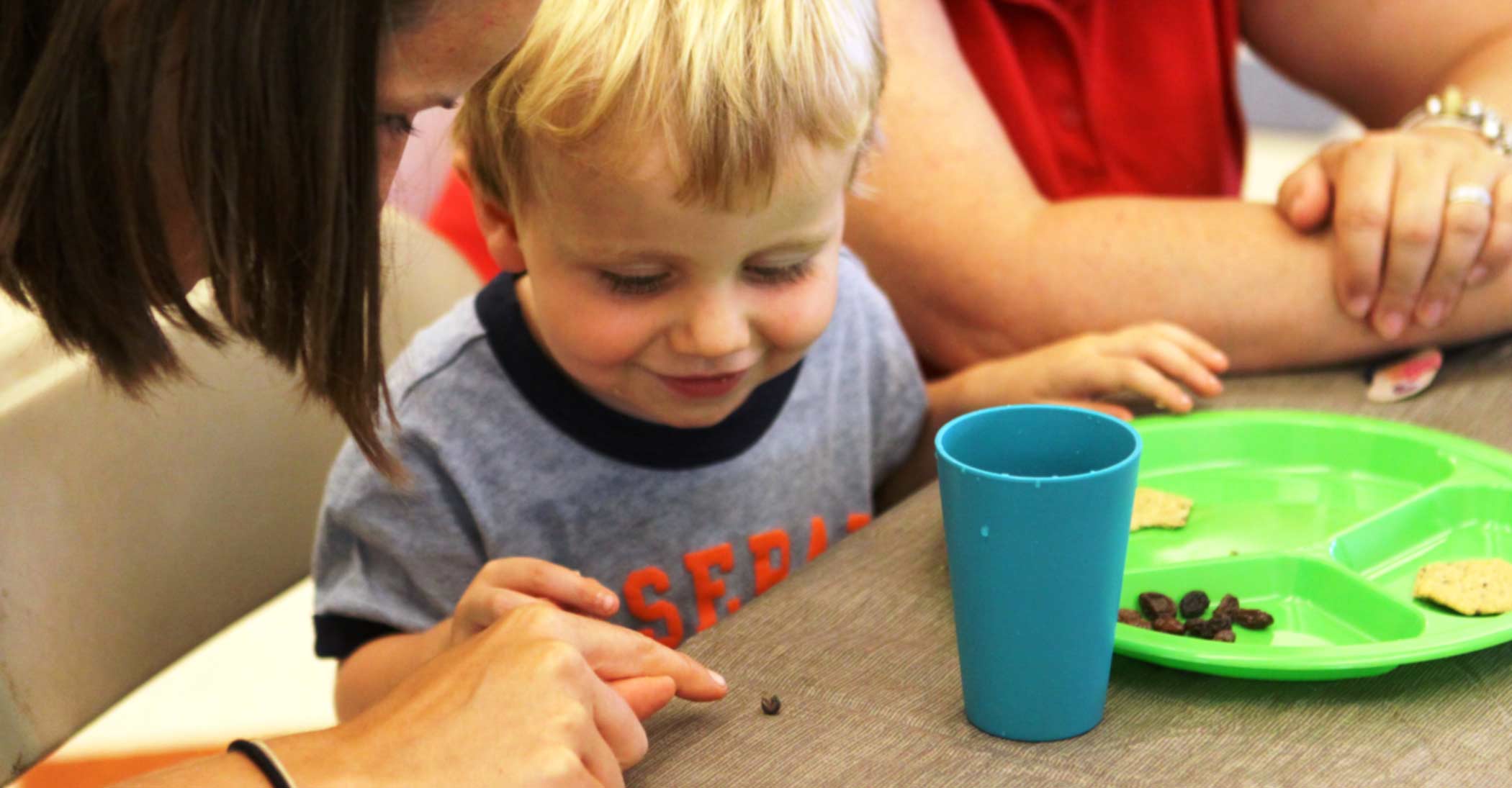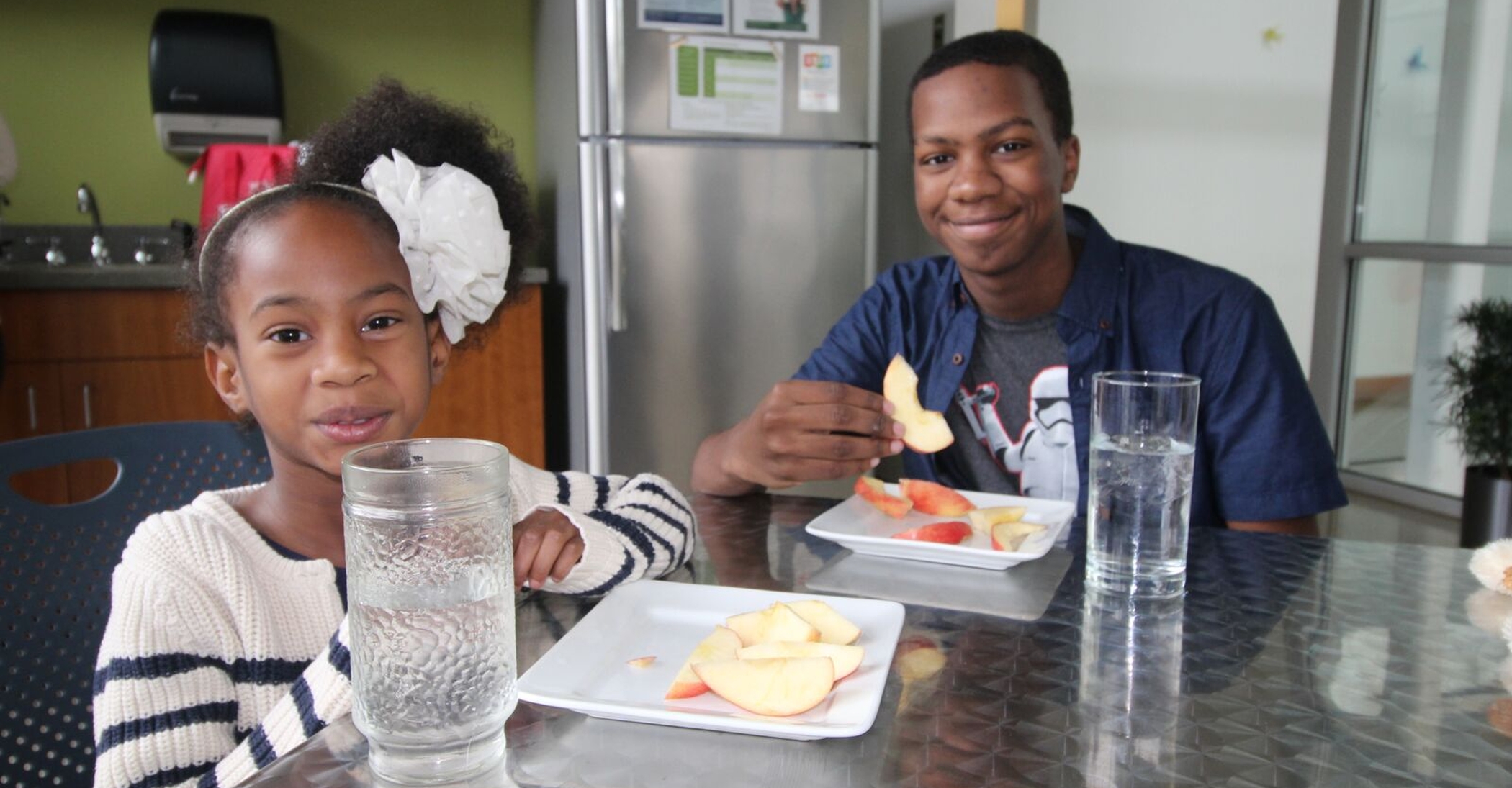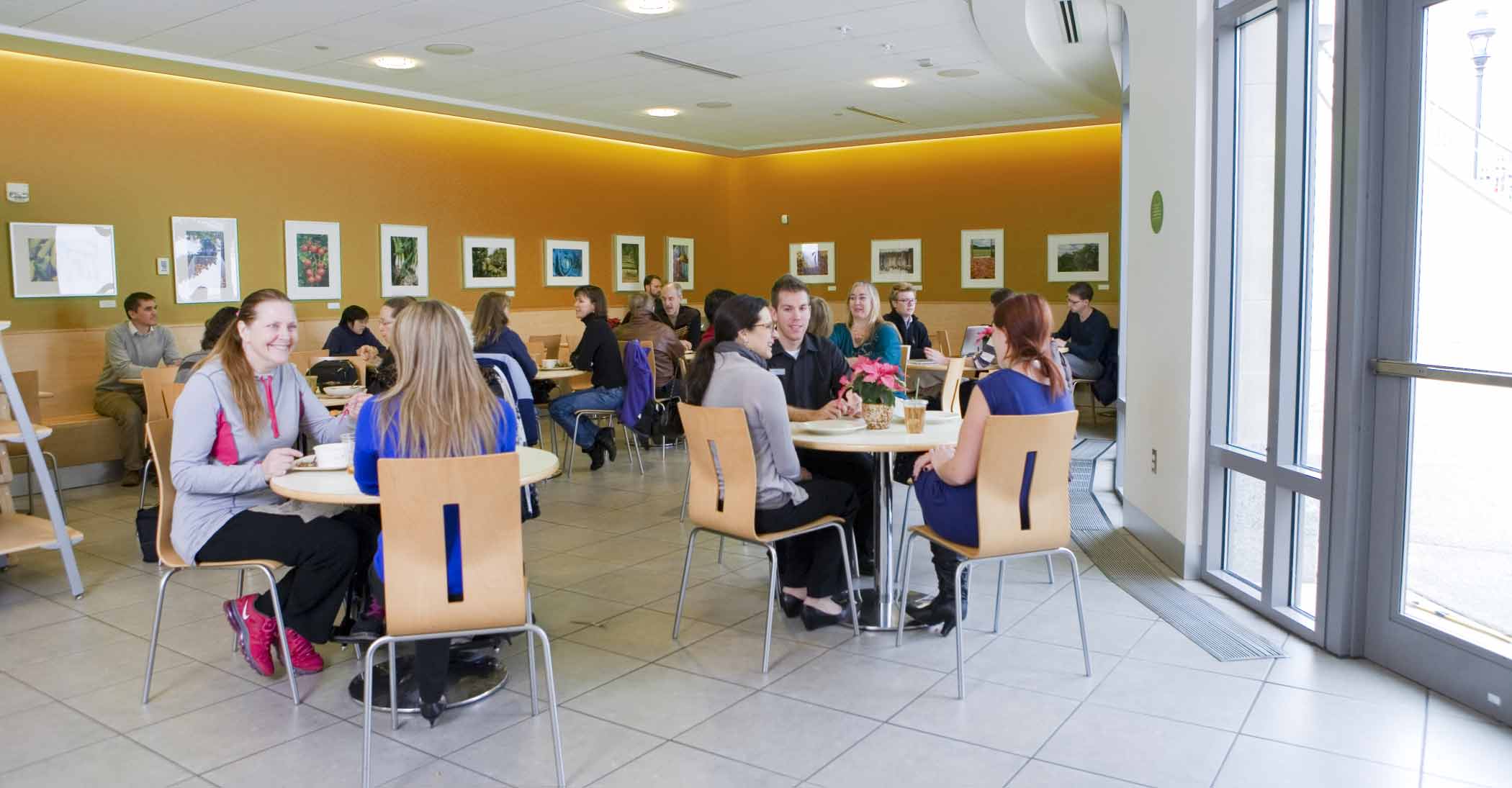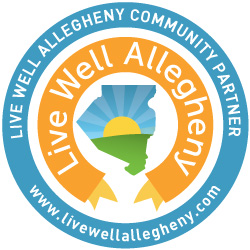Where We Work
In Early Childhood

Why We’re Moving in Early Childcare Centers
- With most parents working outside of the home, center-based arrangements serve as a primary source of childcare in the United States. Preschoolers spend an average of 33 hours per week in childcare facilities.1 Let’s Move Pittsburgh views early childcare centers as a valuable opportunity to engage children during their tender, formative years.
- Habits established during the early years of our children’s lives are often those that last a lifetime. Creating encouraging and supportive environments where young children can explore healthy behaviors is essential for growth and development. Implementing wellness-oriented policies at childcare centers can leave lasting imprints on our children’s health.
- Let’s Move Pittsburgh is reaching Pittsburgh’s youngest population through two primary initiatives. An annual grant program, Champion Schools invites parents, volunteers and educators to apply for funding to use towards wellness projects for their early childcare centers. Additionally, 5-2-1-0 messaging will be integrated into local centers though strategic collaboration with childcare owners and staff.
In Schools

Why We're Moving in Schools
- From exercising on the playground to learning about balanced meals during lunch, a child’s school environment has the power to greatly influence his/her daily behaviors. Exposure to messages related to nutrition and active living prepare students to lead proactive lives, both in the classroom and at home.
- In Pennsylvania, over 30% of children in grades K-6 are overweight or obese and almost 35% of children in grades 7-12 are overweight or obese.2 Let’s Move Pittsburgh is actively working with Allegheny County schools to help create healthier school environments. For the fifth year, our Champion Schools program has awarded Allegheny County pre-K and elementary schools with a grant to support outstanding new and existing school-based health and wellness programs. Let’s Move Pittsburgh also partners with schools to lead the 5-2-1-0 program, which promotes four key messages for children’s health and wellbeing.
In Healthcare

Why We're Moving in Healthcare
- Healthcare providers, associations and insurance companies all have the potential to be effective resources for children and their families. Each entity plays a role in preventing, identifying and treating overweight and obesity. We collaborate with healthcare professionals to identify opportunities to incorporate 5-2-1-0 messaging into their practice and in their everyday interactions with their patients.
- According to a recent survey, 54% of Americans are receiving eating advice from their healthcare providers. Of this percentage, 78% report that they have made changes in their eating habits after having these discussions.3 Teaming up with healthcare professionals and registered dietitians allows for Let’s Move Pittsburgh to reach families through the most trusted professionals.
- Let’s Move Pittsburgh is working to connect providers to community resources. Programs like Food Bucks, SNAP and WIC are especially impactful for parents who struggle to provide nutritious meals for themselves and their children.
In Homes and Communities

Why We're Moving in Homes and Communities
- While early childcare centers and schools are important environments for children, healthy habits often begin at home. The time children spend out of school, at home or in the greater community largely influences their eating habits and physical activity rates. Both parents and their children can benefit from increased opportunities to be physically active and have access to fresh, nutritious foods.
- Let’s Move Pittsburgh offers a free 5-2-1-0 Texting program, which sends biweekly tips and reminders to practice daily healthy behaviors. We also offer free Family Fitness Classes and hands-on family cooking courses in our new Phipps’ Botany Hall Kitchen.
- Families and community centers are encouraged to participate in our 5-2-1-0 program which promotes four daily healthy habits: 5 or more serving of fruits and vegetables, less than 2 hours of recreational screen time, 1 or more hours of physical activity and 0 sugary drinks and more water.
- With strong roots in the greater community of Pittsburgh, Let’s Move Pittsburgh provides direct health education and promotion through tabling at health fairs and events, and presentations on nutrition and health-promoting topics to different community organizations and groups. For more information on how to bring Let’s Move Pittsburgh to you, please contact us at letsmove@phipps.conservatory.org.
In the Food and Beverage Industry

Why We're Moving in the Food and Beverage Industry
- The food we eat plays a large role in our overall health and wellbeing. Busy schedules and the demands of modern life can make it hard to prepare three meals a day. As an alternative, an increased number of families are choosing to purchase ready-to-eat meals at grocery stores, restaurants, and fast food chains. In Pittsburgh nearly half of all residents (47%) live in an area where there is no access to a supermarket that offers fresh produce.4 Among cities of similar size, Pittsburgh is at the top of the list with the highest percentage of people with no fresh produce access.3 The alternative to home cooking becomes a continuous consumption of packaged foods that tend to be high in sugar, salt, fat and saturated fat. Over time, the constant intake of convenience foods can lead to weight gain and poor health.
- Let’s Move Pittsburgh has developed a free mobile app to help families stay on track while purchasing packaged foods and beverages at the grocery store. The app, Green Light Foods, allows users to scan the barcodes of packaged items and displays the levels of sugar, salt, fat and saturated fat in the item. The goal of the app is to help users assess and compare similar packaged products of different brands.
Sources
1 United States Census Bureau (2011).
2 Trust for America's Health (2017).
3 International Food Information Council Foundation (2018).
4 Just Harvest (2013).
Select photos © Cory Doman, Adam Milliron, Brian Cohen









